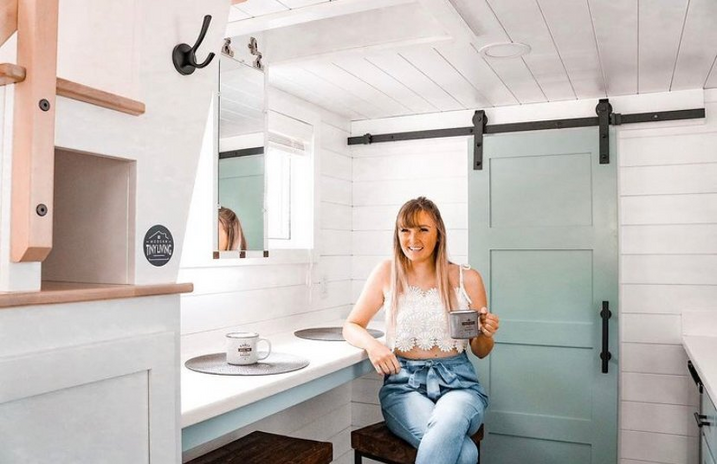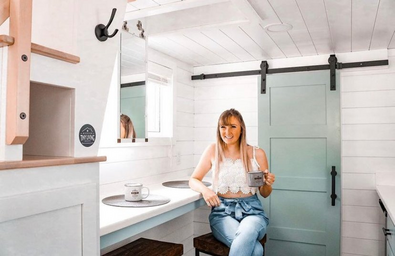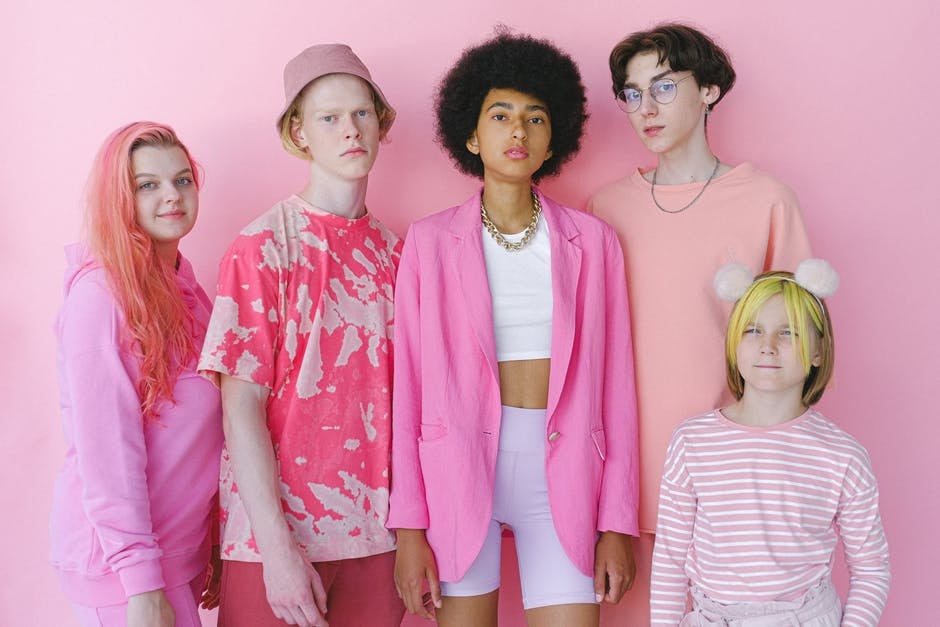Nowadays, you can find a national month for pretty much any object, action, or cause you can imagine. For example, November is dedicated to celebrating many important and serious holidays including National Peanut Butter Lovers Month (sign me uppppp), National Fun with Fondue Month (okay, sick), and Banana Pudding Lovers Month (all pressing issues, I know). Fun food celebrations aside, November is also home to the awareness of several crucial health issues that impact millions of Americans every year including Alzheimer’s disease, epilepsy, and lung cancer.
However, a November health-themed month that often goes unspoken — just like the health issue itself — is National Bladder Health Awareness Month. National Bladder Health Awareness month brings attention to a multitude of bladder-related issues including overactive bladder and urinary incontinence, bladder infection, bladder cancer, and many others. Haven’t heard much talk about these issues or that an awareness month even exists for them? Not many people have.
The reason is certainly not because these issues are uncommon. According to the Simon Foundation for Continence, over $70 billion are spent annually treating bladder conditions and diseases and more than 33 million American adults suffer from overactive bladder (OAB). There are more statistics about bladder-related issues affecting specific demographic groups such as women and veterans that are staggering. Bladder health is a prevalent issue that is affecting large portions of the US population among many different demographic groups.
So why is nobody talking about it?
Focusing in specifically on OAB and urinary incontinence, our trusty internet doctors at The Mayo Clinic say it best: “Urinary incontinence — the loss of bladder control — is a common and often embarrassing problem.” Bladder health problems like urinary incontinence are in fact common, however, there is so much embarrassment and shame surrounding bladder health that no one is talking about it. The problem becomes even more embarrassing among the thousands of young people who are dealing with OAB and related issues due to the common associations between bladder health and children or elderly people. What young person who is trying to form their identity wants to feel like or be associated with annoying pants-peeing children or diaper-wearing nursing home residents? Not me.
The shame and embarrassment caused by these incomplete stereotypes and negative associations are what kept me from speaking about my experiences dealing with OAB and urinary incontinence. While it was something I had dealt with my whole life, I told no one about it until I was 19 years old and had finished my first year of college. In an attempt to open up honest conversation about bladder health, and urinary incontinence in particular, here’s a little bit more about my story:
Starting as a little girl, I always had trouble “holding it,” the thing that all of the adults in my life were urging me to do. Whether I was at home, at school, out in public, playing sports, or spending time at a friend or family member’s house, I would consistently experience sudden urges to go pee and, if I couldn’t make it to the bathroom, the resulting leakage onto my underwear and pants. As a small child, my parents noticed but thought it was due to potty training me too early or because I was refusing to go to the bathroom when I needed to. With no fault to my parents (because we obviously need more awareness of bladder health!), I was even grounded once for peeing my pants at a softball game which they had asked me not to do.
As I made my way into middle and high school, I hoped that I would just grow out of it. I can’t be 12, 15, 17 years old and still not be able to hold it, right? Wrong. I still dealt with the same symptoms of sudden urges that led to leaking which I tried my best to cover up. Needless to say, I became an expert at scoping out bathrooms, covering up wet spots, and making excuses for why I suddenly decided to change my pants. But my stomach would still drop when I felt myself leak, and when I was finally able to make it to the bathroom, I would pray that it was a small amount this time that could easily be concealed. High school is brutal enough without classmates noticing that you have a wet spot on your pants.
But college, I told myself, college MUST be different. There’s no way that I can be a full-fledged young adult and still not be able to hold it. I hoped and hoped that I would finally learn to control my bladder… but nothing changed. I was an 18 year old college woman still worried about where the nearest bathroom was or how to cover up wet marks. At this point, I knew I needed to reach out for help but was BEYOND terrified. How embarrassing, I thought, to still have this problem at 18 years old. There were several instances where I almost told my mom over the phone but got scared and pulled back.
However, I finally reached my breaking point when I got home for the summer. I started working back at my summer job scooping ice cream where I was now one of the openers and shift leads. During the opening shift one morning, I was running the water to fill the sink. All of the sudden the sound of the running water triggered a sudden urge and I couldn’t hold it. I tried making it to the bathroom as fast as possible but the damage had already been done. I tried my best to clean things up but I had no extra clothes to change into and I was stuck at work for the next 6 hours. Sitting in that tiny broom closet-sized bathroom, I knew I wanted to reach out to my parents to tell them what was going on.
While it took a couple of days and all the courage I could muster, I brought it up to both of my parents and they were super supportive. I had my yearly doctor’s visit coming up in the next week so I decided that I was going to bring it up to my doctor then. She referred me to a urologist which was scary in and of itself, but especially because the waiting room was decorated with a mixture of catheters and Cleveland Indians memorabilia from the 1970s and because me and my mom were the only people there under the age of 65 (no wonder there’s so much shame and stigma around bladder health in young people!). The urologist gave me the option to get a scope to make sure there were no other issues going on or to try me out on an overactive bladder medication to see if it worked. Because the idea of a scope in my bladder was one of the most repulsive things I had ever heard, I decided to go with option two.
Flash forward to today and I have been on medication for my OAB for almost two and a half years and it works like a charm! Other than the rare sudden urge or leak, I don’t have to worry about searching for the bathroom when I go to a new place, packing copious amounts of underwear when going on a trip, or fearing outdoor events with inaccessible bathrooms. I can now be around water without getting sudden urges, I have confidence that when I have the urge to go to the bathroom I’ll be able to control it, and I don’t have to worry about hiding stains on the back of my pants. I am so happy that I talked to my family and my doctor to get the medical help that I needed.
But this process was not easy and was riddled with shame. Until this past summer (two years after starting the medication) was the first time I had told anyone other than my immediate family or doctor about my OAB. Bladder issues are stigmatized from the time we are young as an embarrassing act and one that is associated with annoying small children and aging senior citizens. What young person wants to be thought of in either of those ways? These stereotypes and negative associations about bladder health create a vicious cycle for young people where bladder health issues are shameful, nobody talks about them, young people feel that it is an uncommon and embarrassing problem, they don’t reach out for help, and the feelings of shame continue which starts the cycle of silence all over again.
But I’m here to break that silence. Struggling with urinary incontinence and OAB is actually not an uncommon issue for young people, especially young women, as one study found that 1 in 8 women between the ages of 16 and 30 who had never been pregnant experienced urinary incontinence. (Note: The data about OAB being more prevalent in women could be skewed because women are more likely to report and seek treatment for OAB than men). If you are a young person struggling with bladder issues, it’s not because you’re weird or you can’t control it. Bladder issues among young people are poorly understood and other people in your life may project attitudes towards bladder health that are simplistic or incomplete. You are struggling with an easily treatable medical condition which is a normal part of life for most human beings. You are not weird, lazy, misbehaven, or lacking will power.
If you are dealing with OAB, urinary incontinence, or other bladder-related issues, please bring it up with your primary care physician. They will be able to refer you to a urologist or other health specialist to get you the care you need. My doctor was supportive, neutral, and non-judgemental when I disclosed my experiences to her and I am sure that yours will be, too. It improved my quality of life immensely and, no matter how stressful and shameful the process was, I am beyond grateful to have the care and medication that I need.
During this National Bladder Health Awareness Month, whether you are dealing with bladder health issues or not, I implore you to learn more about bladder health by doing a quick Google search (or clicking on the links throughout this article) and challenging the misconceptions and preconceived notions you may have about it. For more people, especially young people, to receive care for bladder health issues, we have to change the cultural script written about bladder health that paints it as something shameful, weird, or the butt of a joke. It is just one of the hundreds of medical conditions that human beings can suffer from, and luckily for us, this one can be an easy fix. Challenge your ideas, get the care you need, and spread awareness to make care for bladder-health more accessible for all.



